Colonel Effingham's Raid
Brief Synopsis
Cast & Crew
Irving Pichel
Charles Coburn
Joan Bennett
William Eythe
Allyn Joslyn
Elizabeth Patterson
Film Details
Technical Specs

Synopsis
In April 1940, retired Army colonel William Seaborn Effingham returns to his hometown of Fredericksville, Georgia, after an absence of many years. Newspaper reporter Albert Marbury is pleased to become acquainted with his "cousin Willie," whom he has not seen since he was a small boy, and tells him that the polite society of Fredericksville retains its aversion to politics or causes of any kind. On Confederate Memorial Day, Al and his pal Dewey are loafing around the newspaper office when editor Earl Hoats arrives and complains that a rival paper is getting more advertisers because it supports the policies of the mayor and his cronies, including their plan to rename Confederate Monument Square after Pud Toolen, a deceased politician of dubious ethics. Hoats, a transplanted Northerner, insists on printing editorials in support of the mayor, despite the protests of Al, Dewey and society editor Ella Sue Dozier. One afternoon, Effingham comes to the office and offers to write a military commentary column, and Hoats reluctantly agrees. Effingham's column is a success and he is welcomed back into the town's old society circles, although some of his former chums, who are now prosperous businessmen, look down upon him for "lowering" himself by writing for the public. Later, Effingham learns about the plan to rename the town square and writes against it, thereby infuriating Hoats. Effingham persists, however, and suggests to the mayor that the square be beautified rather than renamed. The mayor and his cronies consider Effingham a crackpot, but decide to use his idea to cover up their own graft-laden scheme to tear down the courthouse and build a new one. Effingham is outraged when the mayor reveals his plan and vows to save the historic building, although an indifferent Al declares that the old structure should go. Effingham asks a friend, retired Army engineer Major Anthony T. Hickock, to inspect the courthouse, and he confirms that it should be restored. Determined to slip the plan past the town citizens, as he has already signed a construction contract with his brother-in-law, Bill Silk, the mayor holds a town meeting, which he believes no one will attend. Effingham has written about the meeting, however, and the packed hall is filled with people opposed to the mayor's plan. Undaunted, the mayor misleads the people into thinking that the federal government will only give them a grant if the courthouse is completely rebuilt rather than restored, and that it will cost the taxpayers too much money to preserve the building. Effingham investigates and learns that the mayor lied, but Al tells him that it is useless to fight the politicians. When the mayor declines to hold another public meeting on the issue, Effingham goes to three of the most influential men in town to ask for their help. The men, who Effingham had believed were his friends, tell him that he is unrealistic and that they cannot get involved in such matters. Disillusioned, Effingham gives up his fight and his health begins to fail. Al, who has joined the National Guard to impress Ella Sue, is about to leave on active duty, and when he goes to say goodbye to Effingham, he is astonished by his cousin's decline. Finally realizing that the idealistic old man has been right all along, Al organizes the other soldiers and demands that the mayor and town council restore the old courthouse and leave Monument Square as it is. The mayor promises to follow their wishes, and Al is rewarded with a kiss from Ella Sue. Effingham's will to live is restored by Al's actions, and while his friends apologize for letting him down, the proud old soldier salutes Al as he marches off with his men.

Director

Irving Pichel
Cast

Charles Coburn
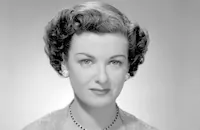
Joan Bennett

William Eythe
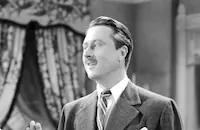
Allyn Joslyn
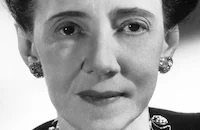
Elizabeth Patterson
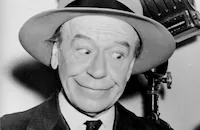
Donald Meek

Frank Craven
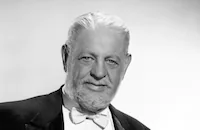
Thurston Hall

Cora Witherspoon
Emory Parnell
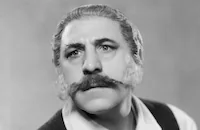
Henry Armetta
Michael Dunne

Roy Roberts
Boyd Davis
Charles Trowbridge
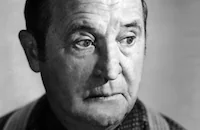
Frank Orth
Nicodemus Stewart
Robert Dudley
Ferris Taylor
Oliver Prickett
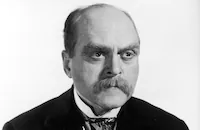
Grant Mitchell

Clyde Fillmore
Carol Andrews
George Melford
Harry Hayden
Charles Wagenheim
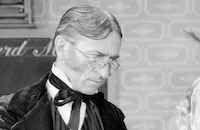
Olin Howlin
Marshall Ruth
Edward Fielding
Mildred Gover
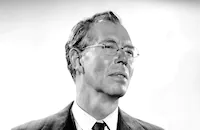
Walter Baldwin
George O'hara
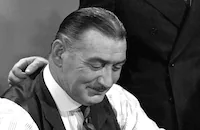
Edward Keane
Dave Ballard
Sam Mcdaniel
George Reed
George Chandler
Ed Allen
James Adamson
Charles Moore
Guy Beach
Ken Christy
Paul Burns
Paul Kruger
Clinton Rosemond
Cecil Weston
Phil Tead
Henry Hastings
Abe Dinovitch
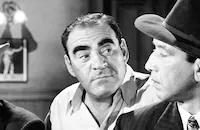
Ralph Dunn
Alma Kruger
Elizabeth Williams
Minerva Urecal
Gus Glassmire
Herbert Heywood
Jim Toney
Harry Humphrey
Hallene Hill
Crew
Charles Althouse
Michael Audley
Edward Cronjager
Henry Cronjager
Frank Gabrielson
Edwin Hammeras
Roger Heman
Albert Hogsett
Artie Jacobson
Harmon Jones
Gertrude Kingston
R. A. Klune
Ernest Lansing
Thomas Little
Cyril J. Mockridge
Kay Nelson
Emil Newman
Ben Nye
Frances C. Richardson
Sam Schneider
Kathryn Scola
Fred Sersen
Murray Spivack
J. O. Taylor
Lamar Trotti
Lamar Trotti
E. Clayton Ward
Lyle Wheeler

Film Details
Technical Specs

Articles
Colonel Effingham's Raid
Fleming had based his novel on the uproar that followed plans to tear down the Richmond County Courthouse in August, Ga. Originally Fox planned to give the female lead to a bona fide Southerner, Mary Anderson, one of the many screen hopefuls discovered when David O. Selznick sent his talent scouts into the South to find an actress to play Scarlett O'Hara. Alabama-born Anderson was one of only two women discovered on the trip to actually land a role in 1939's Gone with the Wind (she played Maybelle Merriwether, while Savannah, Ga., native Alicia Rhett played India Wilkes), but Anderson was the only one of the two to stay in Hollywood. To play the colonel, the studio announced a decided Northerner, Monty Woolley.
By the time Colonel Effingham's Raid went before cameras, Fox had changed actors and even switched heritages. Now Coburn, who was not only born in Savannah, but created a theatre company whose home still stands there, was the perfect choice for Col. Effingham, while Joan Bennett, though born in New Jersey, at least had the bearing for her role as a society reporter.
Unfortunately, for Bennett, that was about all the role demanded of her. She had been associated with the studio since it was just Fox Pictures and had experienced several career breakthroughs there. Although under contract to independent producer Walter Wanger, who was also her husband, since the early '30s, she had continued coming back to the studio, where she had scored one of her best roles as the plucky streetwalker in director Fritz Lang's Man Hunt (1941). Since then, however, Fox's assignments for her had grown increasingly lackluster. Her top-billed but inconsequential role in Colonel Effingham's Raid would be her last for Fox, though she would continue to land solid parts, particularly in films noirs, at other studios.
Coburn was much better served by the studio. He had been in demand as a character actor since he started appearing in films full-time with Of Human Hearts in 1938. Coburn usually played bombastic society types such as the department store owner in Bachelor Mother (1939) or the aging cupid for which he had won an Oscar® in The More the Merrier (1943). Fox, however, gave him the chance to play against type, as when he played one of the president's most sympathetic advisors in Wilson (1944). As the star of Colonel Effingham's Raid he got to display more range than usual, grandly expounding in the scenes in which he celebrates his military heritage but also showing a more vulnerable side when he thinks he's lost the battle.
Fox surrounded its stars with accomplished character actors such as Allyn Joslyn, as the cynical newspaper editor; Donald Meek and Frank Craven, as Coburn's old friends; and Thurston Hall as the corrupt mayor. As Bennett's love interest, they cast contract star Eythe, who had made his debut at the studio in The Ox-Bow Incident (1943). One of many younger actors promoted to leading roles while Hollywood's top stars were off fighting in World War II, Eythe had only a brief chance to shine before he was relegated to being the studio's back up whenever Tyrone Power turned down a film. His career hit the skids when a scandal sheet published pictures of him with Fox star Lon McAllister suggesting that the two were romantically involved, nor could a quick marriage to starlet Buff Cobb do much to squelch the bad publicity. He would turn to the stage after Fox let his contract lapse.
Colonel Effingham's Raid was shot early in 1945 but sat on the shelf for a year. This was no judgment against the film. Like many Hollywood studios toward the end of World War II, 20th Century-Fox wound up producing more films than it could release, leading to lengthy delays in the release of films not directly related to the war effort. Colonel Effingham's Raid was finally released early in 1946, fittingly with its gala premiere in Atlanta.
Producer: Lamar Trotti
Director: Irving Pichel
Screenplay: Kathryn Scola
Based on the novel by Berry Fleming
Cinematography: Edward Cronjager
Art Direction: Albert Hogsett, Lyle R. Wheeler
Music: Cyril J. Mockridge
Principal Cast: Charles Coburn (Col. William Seaborn Effingham), Joan Bennett (Ella Sue Dozier), William Eythe (Albert 'Al' Marbury), Allyn Joslyn (Earl Hoats), Elizabeth Patterson (Cousin Emma), Donald Meek (Doc Buden), Frank Craven (Dewey), Thurston Hall (Ed, the Mayor), Cora Witherspoon (Clara Meigs), Henry Armetta (Jimmy Economy), Roy Roberts (Army Capt. Rampsey). BW-72m.
by Frank Miller

Colonel Effingham's Raid
Quotes
Trivia
Notes
The working titles of this film were Rebel Yell and Everything's Peaches Down in Georgia. The picture's opening title cards read, "Twentieth Century-Fox presents Charles Coburn, Joan Bennett, William Eythe in Berry Fleming's Colonel Effingham's Raid." According to information in the Twentieth Century-Fox Produced Scripts Collection, located at the UCLA Arts-Special Collections Library, Margaret Prussing and Albert Shelby LeVino worked on a version of the screenplay, but their work was not incorporated into the finished picture. Hollywood Reporter news items note that Monty Woolley and Mary Anderson were originally scheduled to star in the film, with producer Lamar Trotti briefly set as the director and screenwriter. In April 1943, a studio press release announced that John M. Stahl would direct the picture, and in December 1943, a publicity announcement included Clem Bevans in the cast.
The Twentieth Century-Fox Records of the Legal Department, also at UCLA, contain contracts indicating that Darby Jones was originally set to play "Ninety-Eight," Armand "Curly" Wright was to play "Jimmy Economy" and George Carleton was to play "Jessie Bibbs." None of those actors appeared in the released film, however. The CBCS erroneously lists actor Frank Mitchell (instead of Grant Mitchell) in the role of "Major Anthony T. Hickock." According to a February 1945 Hollywood Reporter news item, production shut down for two weeks while Joan Bennett recovered from the flu. Although an January 11, 1945 Hollywood Reporter news item stated that scenes featuring actor Edward Fielding, who died on January 10, 1945, would be reshot with another actor, Fielding does appear in the completed picture, which marked his last screen appearance. According to a correspondence from Fleming, contained in the legal files, the story was inspired by "an incident that occurred in Augusta [GA] in March 1941 when the county commissioners...proposed to raze the Richmond county courthouse." On November 3, 1949, Coburn recreated his role for The Hallmark Playhouse radio broadcast of the story.














